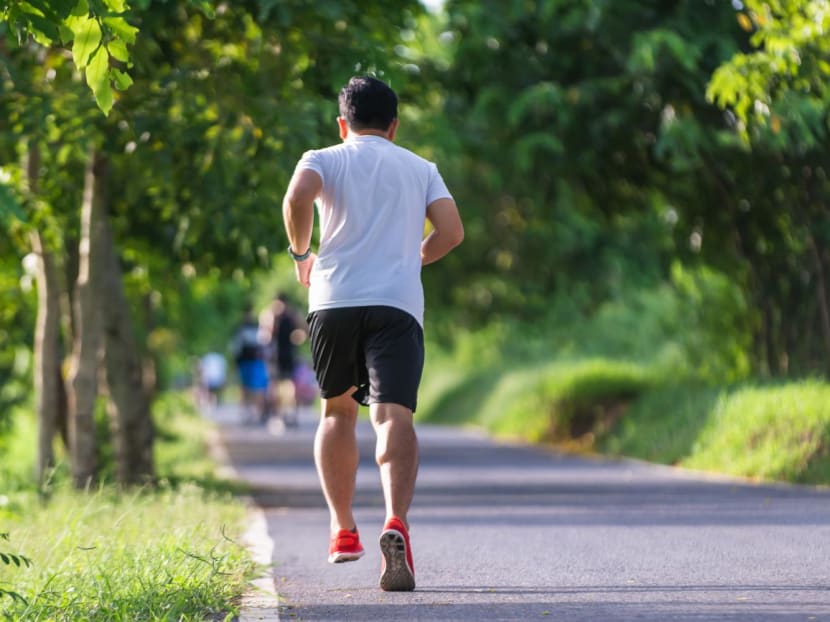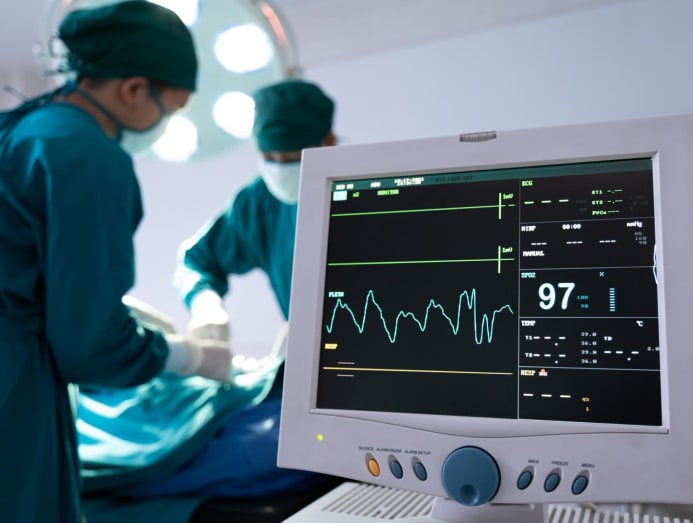Sudden deaths: Why do seemingly fit and healthy people die for no apparent reason?
What health causes could lead to unexpected deaths and could you unknowingly be in the same shoes?

More than 3,000 people suffer from sudden cardiac arrest every year in Singapore. (Photo: iStock/choochart choochaikupt)
Over the years, you might recall reading about active individuals – age notwithstanding – dying suddenly for seemingly no apparent reason.
The passing of Creative Technology founder and CEO Sim Wong Hoo at the age of 67 would be the most recent incident that comes to mind. While no cause of death has been revealed officially, friends who attended the tech pioneer’s wake said they were “shocked” as he ran marathons and had appeared to be in good health. The family has declined to speak to the media.
What is the likely cause (or causes) of a sudden death that afflict fitness-conscious individuals? Are there warning signs that could save lives if these had been heeded? CNA Lifestyle asked some doctors for their views.
WHAT ARE THE POTENTIAL CAUSES OF SUDDEN DEATH?
There can be a few cardiovascular-related causes for such deaths and they vary according to age, said Professor Tan Huay Cheem, a senior consultant with Department of Cardiology at National University Heart Centre, Singapore (NUHCS).

In those above 30 years old, the most common cardiovascular causes are heart attack, myocarditis (inflammation of the heart muscle), stroke and aortic dissection, where a tear occurs in the inner layer of the body's main artery or aorta, he said.
Prof Tan added that those who die unexpected deaths – and are younger than 30 – are likely to have encountered hypertrophic cardiomyopathy (the abnormal thickening of the heart muscle), congenital coronary anomalies (the coronary artery is in the wrong spot or it started in the wrong spot at birth), myocarditis or arrhythmias (abnormal heart rhythm).
"Men suffer twice the rate of OHCA (out-of-hospital cardiac arrest) compared to women," he said.
In some patients, the cause of sudden death could be a ruptured aneurysm of the artery, said Dr Rajesh Dharmaraj, the head of division and a senior consultant in vascular surgery with Department of Cardiac, Thoracic and Vascular Surgery at NUHCS.
Related:
“It can occur in patients who have large aneurysms (an abnormal swelling of the artery) that go undiagnosed. The wall of the artery becomes weak and swells over time to a point where the wall gives way and the patient bleeds internally, resulting in sudden death for some patients,” he said.
HOW DOES AGE PLAY A ROLE IN THESE CARDIAC-RELATED SUDDEN DEATHS?
The risk does increase with age, according to the OHCA Data Report 2019 published by the Singapore Heart Foundation.
“Those above the age of 65 constitute the highest risk group of patients, accounting for 36.2 per cent of cases in 2019,” said Prof Tan, citing the report. “The risk of sudden death in those who are young remain exceedingly uncommon.
The same goes for aneurysms, said Dr Rajesh. “Aneurysms mainly develop in the elderly with risk factors such as smoking and hypertension,” he said, although in some patients with genetic syndromes such as Marfan syndrome and Ehlers-Danlos syndrome, aneurysms can occur at a younger age.

WHY DO THESE HAPPEN TO INDIVIDUALS WHO ARE SEEMINGLY FIT AND HEALTHY?
With more than 3,000 people suffering from sudden cardiac arrest every year, according to the OHCA Data Report, and numerous articles on local and overseas sportsmen and active individuals meeting untimely ends, it may seem that even the fit and healthy can’t escape a fatal cardiac arrest.
However, these cardiac-related sudden deaths may be explained by vigorous physical exertion underscored by an undiagnosed underlying heart problem such as a heart muscle disorder, an electrical problem, an infection weakening the heart muscle, or a congenital abnormality of the coronary arteries, according to HealthXchange.sg.
For patients with aneurysms, there may even be symptoms such as the sudden onset of back and abdominal pain as well as giddiness or loss of consciousness from a drop in blood pressure, said Dr Rajesh.
WHAT CAN YOU DO TO MINIMISE THE RISKS OF CARDIAC-RELATED SUDDEN DEATH?
“It is difficult to predict the occurrence of sudden cardiovascular events,” said Prof Tan, but that doesn't give you the excuse to slack off.
“A healthy lifestyle and effective risk factor control remain the best insurance against its occurrence," he said. "The lack of good quality sleep is now being increasingly recognised as an important risk factor.”
Another lifestyle approach is to manage your stress levels. Prolonged stress, coupled with emotional stress and tension, can cause the body to produce adrenaline. In turn, your heart pumps faster and harder, and your blood vessels may also narrow, according to HealthXchange.org.

You can further help yourself by getting your cholesterol levels and blood pressure checked yearly. If your blood pressure is persistently above 140/90mmHg, it can damage the heart and blood vessels when left untreated.
If you’re a smoker, quit. You have two to three times the risk of non-smokers of sudden cardiac death. In fact, smokers account for about 40 per cent of deaths caused by heart disease in patients who are younger than 65 years, according to HealthXchange.org.
Read this story in Bahasa Melayu here.
Read this story in Bahasa Indonesia here.





